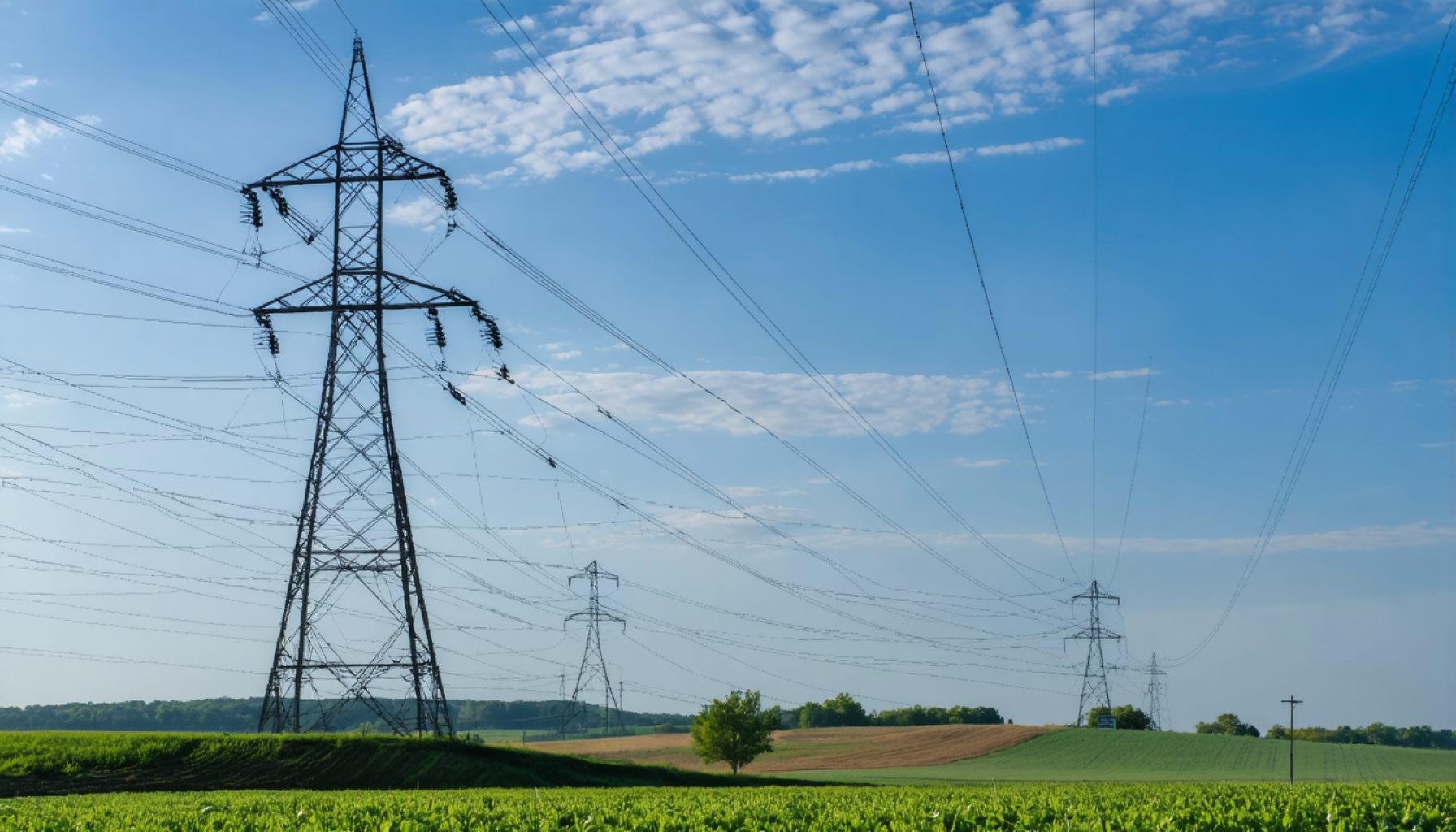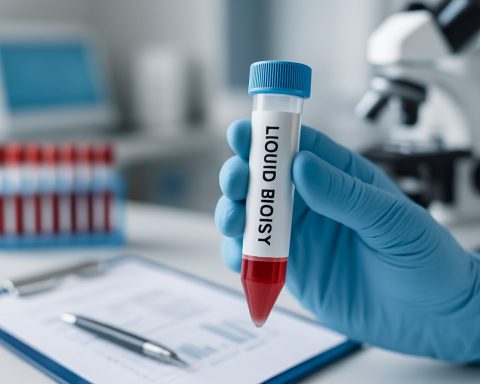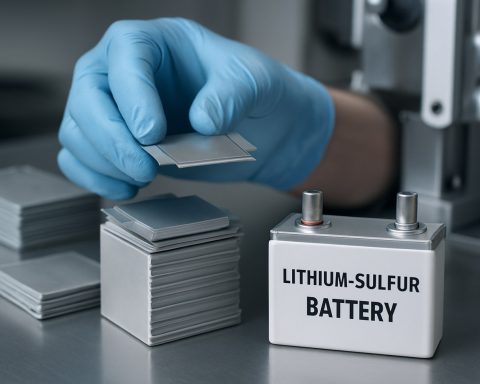- Ascend Elements pauses its electric vehicle battery project in Kentucky due to market fluctuations and strategic realignments.
- Key clients delay pCAM deliveries, prompting a reevaluation of vendor partnerships and contracts.
- Construction giant Turner-Kokosing files a $138 million lawsuit, highlighting project challenges.
- Ascend declines a $164 million federal grant to focus on a strategic pivot away from certain battery components.
- The company plans to resume construction by the third quarter, aiming for operations by late 2026, emphasizing adaptability and economic prudence.
- This situation reflects the dynamic nature of the manufacturing sector, with Ascend’s flexibility serving as a key strength.
The ambitions of Ascend Elements to revolutionize the electric vehicle industry have encountered an unexpected pause, casting uncertainty over a project that once promised to be Kentucky’s beacon of innovation. Nestled in the heart of Christian County, the sprawling grounds of the Apex 1 factory site now sit eerily silent, a stark contrast to the buzz of machinery and labor that marked its groundbreaking in 2022.
Market Fluctuations and Strategic Realignments
Ascend Elements, a formidable player in electric vehicle battery technology, had embarked on this venture with grand visions—only to face the sobering reality of market fluctuations. As global demand ebbs and flows, several of Ascend’s key clients have signaled a delay in their need for pCAM (precursor cathode active material) deliveries, granting the company a unique opportunity to recalibrate. This shift in timelines has allowed Ascend to meticulously re-examine its vendor partnerships and contractual obligations.
In the midst of these strategic realignments, Turner-Kokosing, the construction powerhouse responsible for bringing the Apex 1 dream to life, has initiated legal proceedings. The lawsuit, amounting to a staggering $138 million, speaks volumes about the complexities and challenges inherent in such monumental undertakings. Ascend Elements remains poised to settle legitimate dues, yet the company also remains judicious, ensuring the prudent management of both public and private funds.
The Ripple Effect of a Federal Grant Cancellation
The path forward for the Hopkinsville project took another surprising turn when Ascend decided to forgo a $164 million federal grant from the U.S. Department of Energy. This monumental decision centered on a crucial strategic pivot: the choice to discontinue the production of a key component in lithium-ion batteries. As markets pivot, so too must companies—a testament to Ascend’s agility and forward-thinking ethos.
Yet, despite the bumps in the road, Ascend Elements remains resolute. Plans are underway to rejuvenate construction efforts by the third quarter of this year, with sights set on operational readiness by late 2026. This timeline underscores the firm’s steadfast commitment to its vision and the electric revolution it seeks to fuel.
A Testament to Flexibility and Economic Prudence
The tale of Ascend Elements is more than an account of paused construction; it is a narrative of adaptability in the face of uncertainty. The company’s ability to navigate changing market conditions, manage legal complexities, and strategically pivot all serve as powerful reminders of the dynamic nature of the manufacturing sector.
As Ascend Elements charts a new course, the broader community watches with bated breath, eager to witness the dawn of a project that promises not just economic resurgence, but a greener, electrified future. Kentucky’s landscape may be temporarily altered, but the promise of innovation still shines brightly on the horizon.
A New Era for Electric Vehicle Power: What Ascend Elements’ Strategic Adaptations Mean for the Future
Market Dynamics and Industry Trends
The electric vehicle (EV) battery industry is undergoing rapid transformation, driven by fluctuating demand, technological advancements, and regulatory changes. Ascend Elements, a key player in this landscape, finds itself at the intersection of market volatility and innovation. Despite the temporary hurdles, the company’s pause on its Kentucky project offers insights into broader industry trends.
1. Demand Variances and Market Reactions
Globally, the demand for electric vehicles and their components often ebbs and flows based on several factors, including government incentives, technological breakthroughs, and consumer acceptance. Ascend Elements’ decision to recalibrate its operations aligns with a market-wide tendency to respond tactfully to these fluctuations. According to a report by BloombergNEF, the global demand for lithium-ion batteries is expected to grow exponentially by 2030, despite current slowdowns, due to the push for greener energy solutions.
2. Legal and Financial Strategies
The $138 million lawsuit from Turner-Kokosing highlights the complexities of large-scale industrial projects. It underscores the importance of robust legal frameworks and careful financial management in securing and managing public and private investments. Effective navigation of these legal and financial challenges is crucial for maintaining project viability and trust among stakeholders.
Federal Grants and Strategic Pivots
By refusing the $164 million federal grant, Ascend Elements demonstrates strategic flexibility that may benefit the company long-term. Their decision reflects a broader industry acknowledgment of needing to make challenging choices to steer through periods of unpredictability. Insights into this decision also emphasize the necessity of aligning project scopes with market demands and technological feasibilities.
Real-World Use Cases and Operational Plans
1. Resuming Operations
Ascend Elements plans to recommence construction in the third quarter of 2024 and aims for operational readiness by late 2026. This schedule places Ascend at the forefront of anticipated EV market growth and resurgence. The decision to delay, rather than abandon the project, positions Ascend Elements strategically to meet future demand surges.
2. Strategic Vendor Partnerships
The pause allows Ascend Elements to re-evaluate and strengthen vendor partnerships. This period is crucial for realigning the supply chain strategies to ensure they are robust enough to withstand future disruptions and align more closely with the company’s revised tactical objectives.
Pros and Cons Overview
Pros:
– Strategic flexibility allows Ascend to adapt to market changes.
– Potential to realign with more sustainable and advanced technologies.
– Financial prudence can safeguard the company’s long-term viability.
Cons:
– Lawsuit could divert resources away from project completion.
– Loss of a federal grant may constrain immediate resource availability.
– Delays might lead to lost market opportunities in rapidly evolving industry.
Actionable Recommendations for Industry Stakeholders
– Invest in Tech Upgrades: Stakeholders should consider investing in technologies that allow for rapid adaptability and sustainability in battery component production.
– Legal Readiness: Companies embarking on similar ventures should ensure airtight legal contracts and consider potential disputes as part of their risk management strategy.
– Staying Informed on Market Trends: Regular market analysis can help companies to anticipate demand shifts and technological evolutions proactively.
For further insights into industry developments, visit the main site of Ascend Elements.
By observing Ascend Elements’ strategy, other industry players can glean valuable lessons on navigating similar industry challenges, ensuring they remain at the forefront of the electric vehicle revolution.









